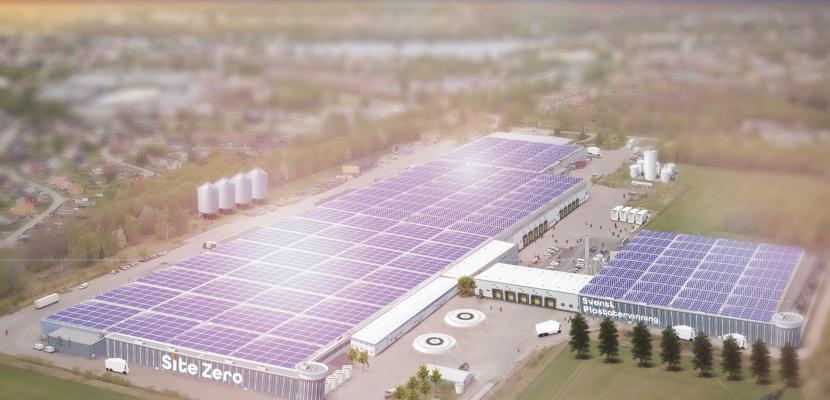
Site Zero and plastic circularity in Sweden

About this good practice
To increase the amount of plastic recycling in Sweden, Site Zero – the world’s largest and most advanced facility for plastic sorting and recycling – opened in 2023. The facility will be able to recycle all types of plastic packaging from Swedish and Finnish households and make plastics circular.
Prerequisites for plastics circularity in Sweden are the Swedish governmental roadmap for more sustainable plastics production and recycling, as well as a functioning ecosystem of waste management. Since 2022, each municipality is responsible for the collection, transportation, and recycling or disposal of municipal waste generated within the municipality, unless it falls under producer responsibility. Most of the household waste is sorted at home using multi-compartment bins, to be collected by municipality services, or taken to recycling centers or recycling stations.
The facility of Site Zero creates the conditions necessary to recycle all collected plastic packaging and establish circular plastic flows, completely without any carbon emissions. Site Zero’s fully automated technology sorts with precision and high quality, ensuring that as much as possible can be recycled and reused in new plastic products. Even packaging made of composite plastic materials can be separated and either chemically recycled or transformed into new composite products. There is no other facility in the world today with this capability.
Resources needed
Owned by the Plastics Industry Information Council, the Grocery Suppliers Association, the Swedish Trade Federation, and the Swedish Food Retailers Federation. Also supported by the Climate investment aid programme Klimatklivet. Total investment: SEK 1 billion (year 2019–2023).
Evidence of success
All Swedish plastic packaging waste is to be made circular, and due to that the actors in the waste and recycling ecosystem work together. Producers putting plastic packaging on the market must ensure that their products are designed for recycling, consumers need to sort their waste at home so that plastic packaging enters the recycling system, the municipalities ensure functional collection of waste, and the recycling plant makes all sorts of plastics circular.
Potential for learning or transfer
Site Zero in Sweden has contributed to a range of positive effects both nationally and internationally as a key component for making plastics circular. Several similar sorting facilities are now being established in Europe, based on the learnings from Site Zero. As part of new circular plastics, new markets and new packaging are also enabled.

